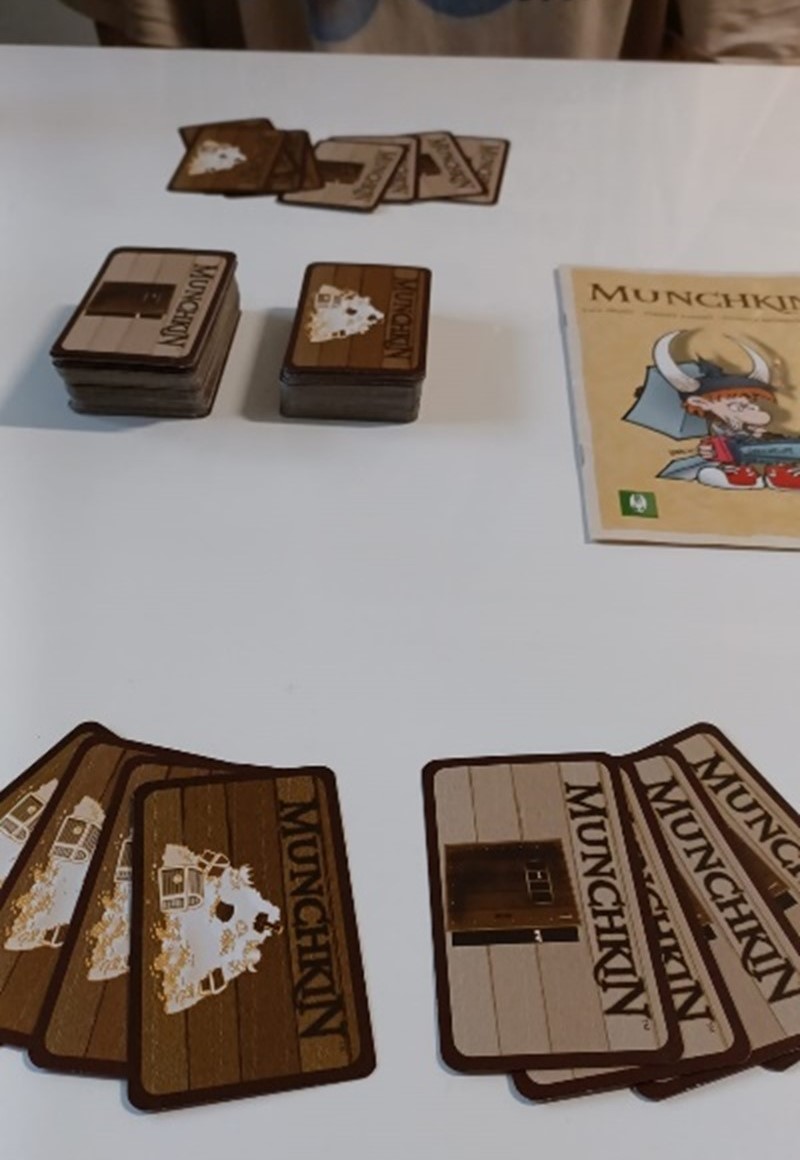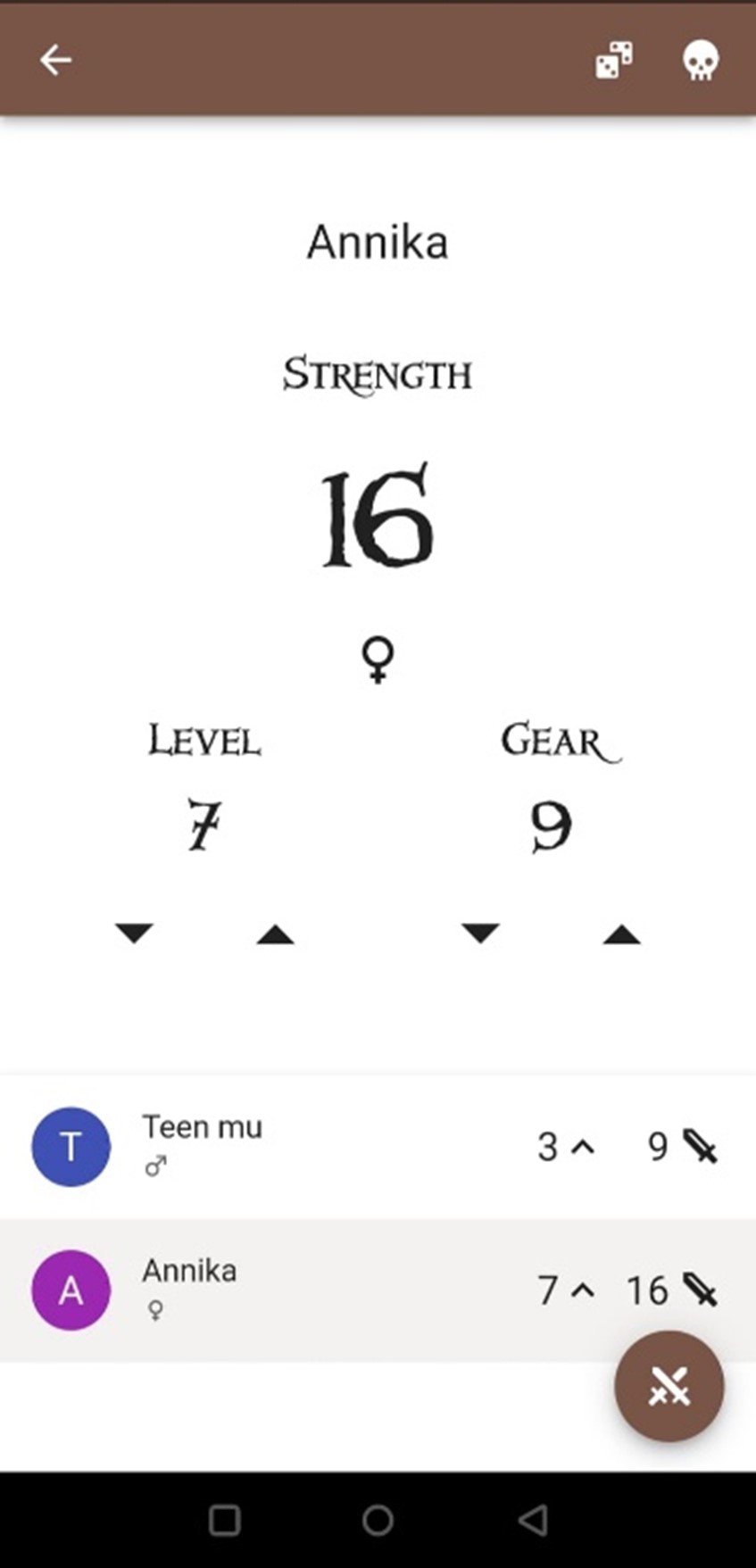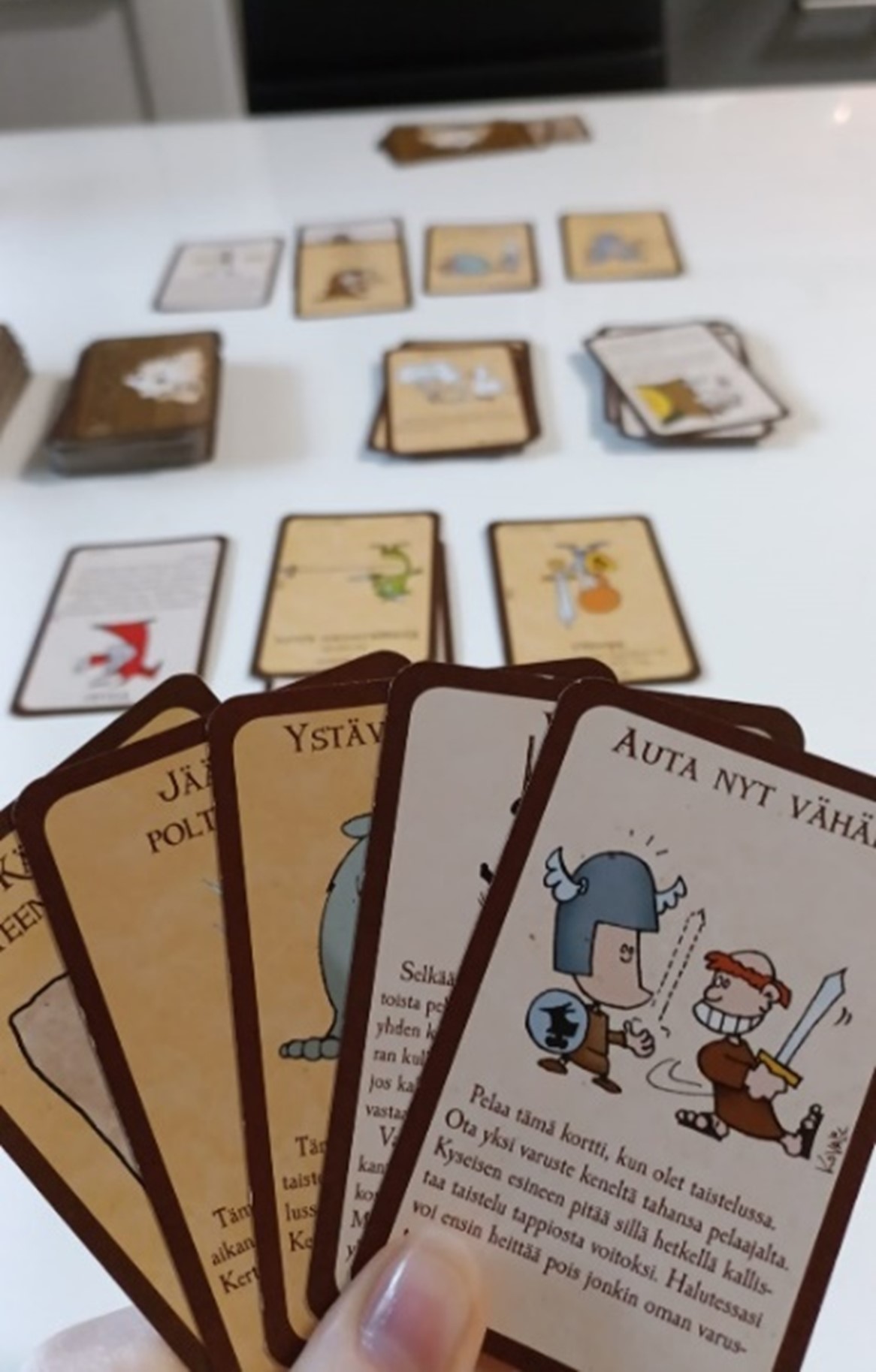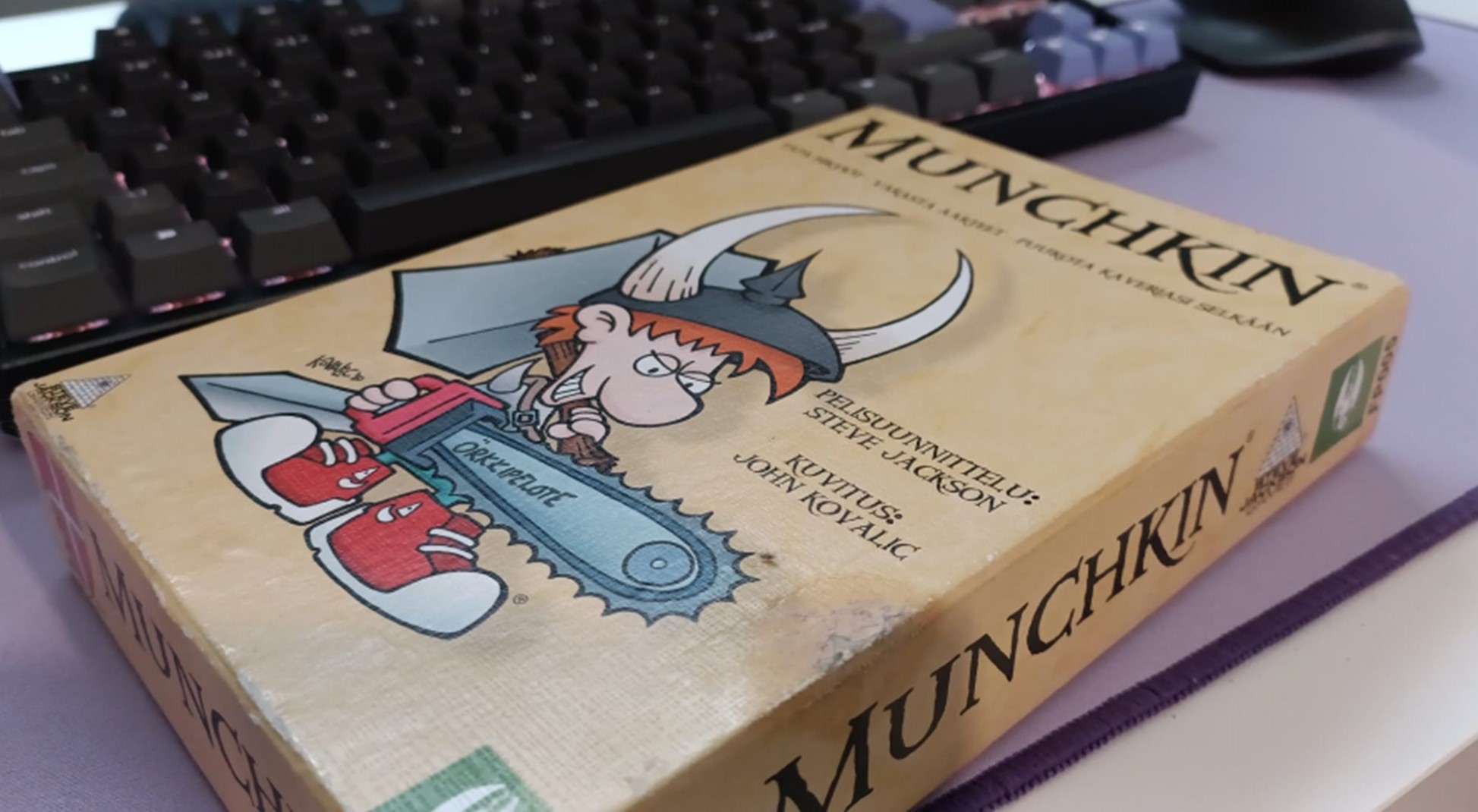For someone whose knowledge of roleplaying games is mainly based on the Netflix show Stranger Things and its portrayal of Dungeons and Dragons, Munchkin was a great way to get a hint of RPGs with a low threshold, all while still retaining the advantages of typical card games. In this humorous game, your goal is simple: reach level 10 before other players. By fighting monsters, you earn treasures, which you can use to reach higher levels. Although every game has its rules with many exceptions, we’ll skip the details, as reading card game instructions can be so boring.

Our exciting journey through dungeons starts with each player sharing eight cards: 4 Treasure cards and 4 Door cards. A treasure deck includes gear for your characters and cards that help you when played during a battle. With the Door deck, it gets a little more complicated; you might get a new class, race, or even a curse. If the card happens to be a Monster, the player can fight or try to escape. Winning gets you more treasures from the Treasure deck, whereas losing makes you lose levels and gear.
Each player decides the cards they want to start with by putting them on the table. And the game is on. In turns, one player takes a new card from the Door deck and hopes it’s not a high-level monster.

Munchkin is advertised as a satirical card game that makes fun of typical RPGs, such as D&D. Its meaning seems to come across as an easily played game where all “complex role-playing-related stuff” is left out. It doesn’t necessarily contain a story around which the game is based, and the rules are more indicative than strict; it is said that the player who screams the loudest gets their way. And of course, cheating is allowed as long as no one notices. Obviously, these are the reasons why Munchkin can’t be directly compared with hardcore RPGs or even RPGs in general, but it isn’t possibly the goal. For me, what sets this game apart is the time it takes to prepare the game and play it; just shuffle the cards and you are ready to go. For those interested in more in-depth story formation, the game still offers an opportunity to come up with their narratives.
The game employs satire not only directed towards RPGs but also related to various, possibly controversial topics, including gender roles and societal norms. Some monsters attack only female or male players, yet you can “change your gender” and avoid the fight that way entirely. The cards also include curses such as ”gender change” and ”income tax” that both make you lose levels. Given the light and humorous nature of the game, I personally don’t see a reason why topics like these are brought up, especially in the negative light as they now can be associated. If anything, they can disturb the game as the player is left confused and wondering whether their purpose is to provoke discussion or just provoke players generally. The game implicitly – or not so implicitly – makes fun of some societal aspects, and eventually, I guess it’s up to the player to decide if it does so in a tasteful manner.

As the game continues, I’m many levels ahead (I have been extremely lucky), the score being 8-1. Because of my high level, I’m now able to beat even the more difficult monsters. However, just when I’m fighting against the level 16 Pharaoh Tut, the monster I should beat easily, my friend draws a card: the monster’s level increases by 5 levels. I lost the battle and almost all my cards. With only the last Wizard on the table, we continue the game, the score now being 1-1.
The game may frustrate and entertain both at the same time; the loose rules allow for backstabbing or cooperation, making maneuvering the absolute best part of the play. Situations change fast, and you will never know if the other player has a card that completely changes your game.
Overall, Munchkin is a beginner-friendly experience that offers a lot even for the more experienced. Only the sky is the limit once you embrace its rules, making it a game we look forward to playing more in the future.
Basic info:
Designer: Steve Jackson
Publisher: Steve Jackson Games
Release date: September 2001
Number of players: 2-6
Playing time: 45-60 minutes
Ages: 10+
Photos taken by the author.
